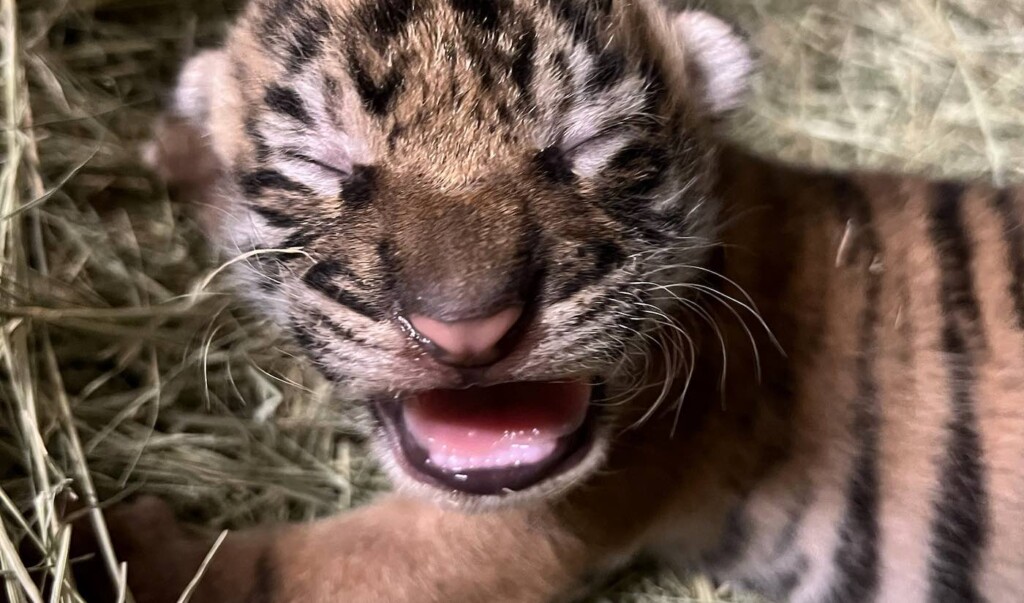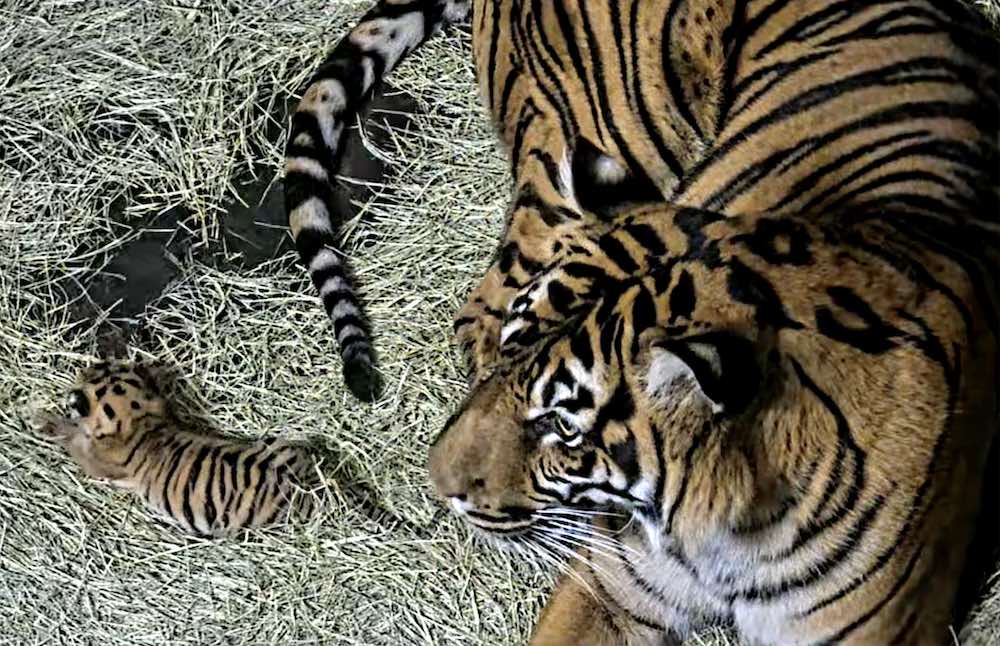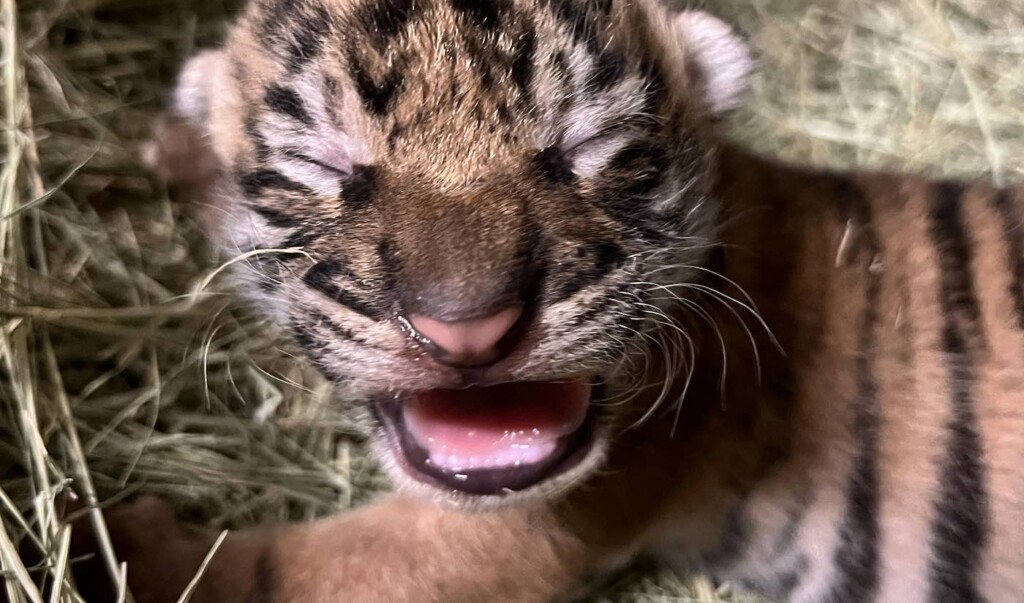San Diego Zoo Celebrates Birth of Sumatran Tiger Cub–Contributing Genetic Diversity to Species with 600 Remaining in Wild

San Diego Zoo is celebrating the birth of a Sumatran tiger cub, a subspecies of which only 600 give or take one-third, remain in the wild.
The cub was born August 23rd to first-time mother Jillian. This birth is an important step in San Diego Zoo Wildlife Alliance’s ongoing work to conserve Sumatran tigers.
Wildlife care specialists are closely monitoring mother and cub, and they report Jillian has quickly taken to being a mom and has been demonstrating all the expected and correct maternal behaviors.
The cub has shown attachment to Jillian and has been very active and vocal as they explore and grow.
“We are thrilled at the birth of this very special tiger cub at the San Diego Zoo Safari Park,” said Lisa Peterson, senior vice president and executive director of the park. “This birth adds Jillian’s incredibly important genes into the pool of the population, furthering the genetic diversity and health of the Sumatran tiger subspecies.”
“Jillian’s care team has done an exceptional job monitoring her and her cub throughout this process, and it has been a joy for them to watch her enjoy motherhood. We hope this cub will allow our guests to gain a greater understanding of this incredibly special subspecies and the importance of conserving their natural habitats.”
The birth is a result of a breeding recommendation through the Association of Zoos and Aquariums’s Sumatran Tiger Species Survival Plan (SSP) Program. Each SSP Program, overseen by conservationists nationwide, ensures genetic diversity and healthy, self-sustaining assurance populations of threatened and endangered wildlife.
The smallest tiger subspecies, Sumatran tigers are extremely threatened, and are the only tiger subspecies left in the Sunda Islands, with the Bali, Bornean, and Javan tigers extinct, (though the latter may still be alive).

Tigers face many challenges, including loss of habitat, human-wildlife coexistence, and poaching. People can help protect tigers by avoiding products made with non-sustainable palm oil, an industry that harms tiger habitats, and by refusing to purchase items made from endangered wildlife.
Jillian and her cub will remain in her den for several weeks. This window of time is crucial, as it allows the youngsters to bond with and learn from their mother. When Jillian is ready, she will bring her cub out of the den, where they will have access to a specially designed maternity habitat.
As of 2013, there were 375 Sumatran tigers kept in zoos all around the world as a means to safeguard and grow the diversity and numbers of this subspecies. Any hope that Indonesian ecologists may have for maintaining intact ecosystems on their largest islands in the future would in theory require tigers, especially Sumatra, but also Java, Bali, and Borneo where they were once native.





